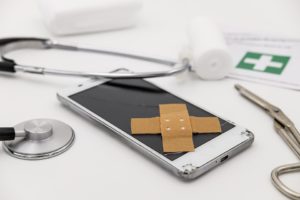Blog
3 Ways Phone Calls Can Make Your Medical Practice Sink Or Swim

- Lost Trust
Research has shown that if callers are directed to voicemail or put on hold for more than 30 seconds, more than a third of them will hang up and not call back. This is especially the case when patients are calling a doctor’s office. While they probably realize that a medical practice is likely to be busy, they also need reassurance that their health is a priority. When their phone calls aren’t managed in a timely manner, patients intuitively assume that office visits and even emergencies will also involve delays. The patient questions whether they can trust this medical practice. And if it’s a prospective new patient, they will most likely call another medical office to see if they receive more prompt attention.
- Misdirected Calls
Most in the medical field have heard horror stories about a patient in distress who called a doctor’s office but didn’t receive a callback or was transferred to the wrong doctor. Time and accuracy are crucial when it comes to urgent medical issues, so these kind of mistakes can be dire. If your phone calls, particularly those of an urgent nature, are mishandled then your practice—not to mention your patients—will suffer.
- Putting PHI At Risk
To avoid long hold times or misdirecting calls, many medical practices hire an answering service to manage their calls. However, not all answering services specialize in working with medical practices, which can become a serious liability for exposing patient health information (PHI). Not all answering services require their agents to be trained and certified HIPAA compliant, but your patients deserve this protection. Call answering representatives must be rigorously trained on HIPAA regulations and be required to pass the HIPAA certification exam each year so that PHI will be protected at all times.
A HIPAA-compliant live medical answering service is the ideal solution to these top three ways that phone call handling can jeopardize your practice. A top answering service will maintain complete information for on-call schedules and your practice’s priorities for coverage of urgent and non-urgent calls. Answering service receptionists will also log and record all calls and responses accurately so that you have access anytime to who called and when, with detailed information about how the call was handled.
Voice Link of Columbus, Inc. makes secure communications even easier with a dedicated app that lets care providers text patient information without putting PHI at risk. Providers can send secure messages to other care team members within their group, and can also attach their dictation to that message. The message can then be downloaded directly to the patient’s electronic chart.
Day or night, outsourcing your practice’s calls will ensure that your patients are attended to with care and compassion, around the clock, every day of the year. Voice link offers nearly 30 years of experience in medical answering services and provides HIPAA-certified live answering services that exceed your expectations. Request information online or call us at (866) 758-5628 for a free consultation.

